members
Bios
-
Amade M'Charek
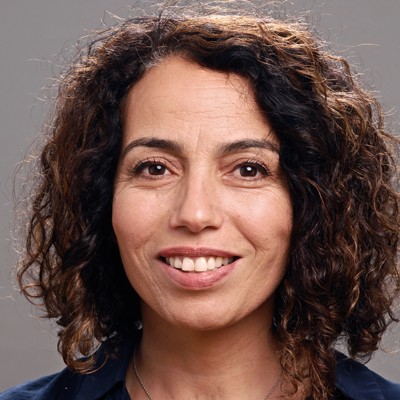
Amade M’charek is Professor of Anthropology of Science at the University of Amsterdam and the PI of the RaceFaceID project. With a long-standing interest in the ethnographic study of scientific practices, her work has addressed population and forensic genetics, archaeogenetics and physical anthropology, biomedical research biometrics. In this work she has focused on diversity and related categories, such as ‘the individual’, ‘the population’, ‘sex’, and the ways similarities and differences come about in scientific research. Over the years her focus has shifted from a study of diversity to the study of race-in-practice and has contributed to an understanding of race as a material semiotic object.
Next to the RaceFaceID, Amade is, co-PI of “Achieving good science. A cross-disciplinary study”, financed by ZonMW, and the PI of “Sexuality & Diversity in the Making”, financed by FWOS and the PI of the completed “Dutchness in Genes and Genealogy”, financed by CGS. She is the founding chair of the European Network for the Social Studies of Forensics and was the founding director of the master’s program in Forensic Science at the University of Amsterdam. She is the convenor of the seminar series The Ir/relevance of Race is Science and Society, which has been running sins January 2010.
research A[dot]A[dot]Mcharek[at]uva[dot]nl publications
 Rather than claiming that race does not exist, or that in Europe we do not do race, it is vital that we start to closely examine how it keeps roaring its head in everyday practices in science and society. I am super happy that within the RaceFaceID team we can dedicate our time and creative energy to unravel how and when race becomes relevant, and to find proper words that capture what it is made to be.
Rather than claiming that race does not exist, or that in Europe we do not do race, it is vital that we start to closely examine how it keeps roaring its head in everyday practices in science and society. I am super happy that within the RaceFaceID team we can dedicate our time and creative energy to unravel how and when race becomes relevant, and to find proper words that capture what it is made to be. -
Roos Hopman
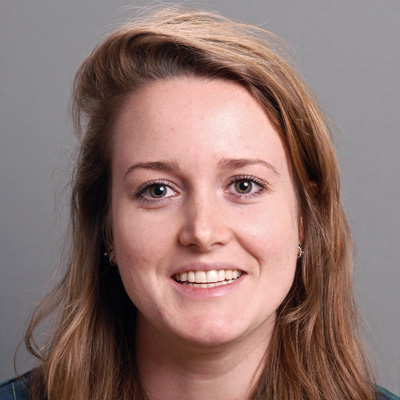
is a PhD candidate in the RaceFaceID project. Her research focuses on forensic DNA phenotyping—technologies geared to infer phenotypical characteristics from DNA found at crime scenes. Roos previously studied cultural anthropology at the University of Amsterdam, where she became interested in physical and medical anthropology and fascinated in the power of images to sway public debate. Besides her work at the university, she enjoys going to rock concerts.
research R[dot]A[dot]Hopman[at]uva[dot]nl
 Being a part of the RaceFaceID team has given me the opportunity to find entry into forensic settings that would have remained off-bounds to me otherwise. I feel privileged to have been offered a glimpse into the backstage of police investigations and to have been able to take a peek into the ‘black box’ of science, but also to experience the dealings in courts and scientific conferences. It is this variety of settings and people that continues to raise my enthusiasm and inspire me.
Being a part of the RaceFaceID team has given me the opportunity to find entry into forensic settings that would have remained off-bounds to me otherwise. I feel privileged to have been offered a glimpse into the backstage of police investigations and to have been able to take a peek into the ‘black box’ of science, but also to experience the dealings in courts and scientific conferences. It is this variety of settings and people that continues to raise my enthusiasm and inspire me. -
Lisette Jong
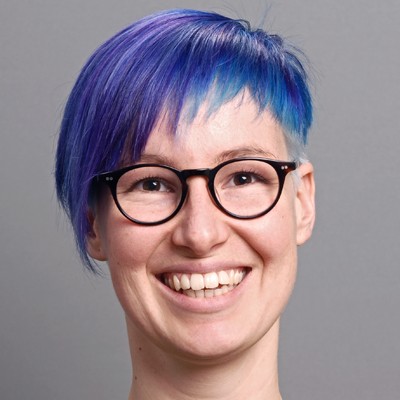
studied sociology and anthropology at the University of Amsterdam where she developed an interest in feminist science studies. As a PhD candidate in the RaceFaceID project, her research focuses on how practices of forensic craniofacial identification and reconstruction give faces to unknown individuals. Besides studying skulls, Lisette enjoys teaching and playing roller derby.
research E[dot]P[dot]D[dot]Jong[at]uva[dot]nl publications
 Getting the opportunity to learn how to make a facial depiction based on the skull of an unknown individual as part of my fieldwork gave me an unique entry into the field of study. This resulted in interesting insights for my research project and a thorough appreciation for the work done by the professionals.
Getting the opportunity to learn how to make a facial depiction based on the skull of an unknown individual as part of my fieldwork gave me an unique entry into the field of study. This resulted in interesting insights for my research project and a thorough appreciation for the work done by the professionals. -
Ryanne Bleumink Pallo
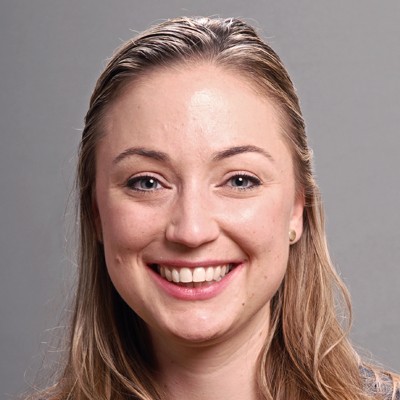
Have you seen the flashy green motorcycle parked outside the University of Amsterdam? It belongs to Ryanne Bleumink Pallo, a PhD candidate in the anthropology department. Ryanne has a BSc in cultural anthropology and a MA in global criminology. Alongside her love for motorcycles, she is a passionate anthropologist, criminologist and mother who believes that research needs to (re)connect with practice. Her research interests include processes of inclusion and exclusion as they relate to law enforcement institutions more generally, and within criminal investigations in particular.
Within the RaceFaceID project, Ryanne studies forensic identification techniques as they relate to race, focusing on the making and dissemination of facial composites in which a face is “given” to an unknown perpetrator. As part of her research, she conducts fieldwork at the Forensic Investigation Department of the Dutch police.
research R[dot]Bleumink[at]uva[dot]nl
 Doing research within the RaceFaceID project and being able to see how, in police practice, facial composites are made changed the way I look at - and perceive faces. As individuals we all have facial features we share and that are different. Every face is unique. That what is believed to divide ‘us’ or bring ‘us’ together as a ‘group’ or ‘category’ is not a matter of our appearance or facial features but a matter of which differences and similarities we pay attention to and which we grant more privileges to (and which not).
Doing research within the RaceFaceID project and being able to see how, in police practice, facial composites are made changed the way I look at - and perceive faces. As individuals we all have facial features we share and that are different. Every face is unique. That what is believed to divide ‘us’ or bring ‘us’ together as a ‘group’ or ‘category’ is not a matter of our appearance or facial features but a matter of which differences and similarities we pay attention to and which we grant more privileges to (and which not). -
Ildikó Zonga Plájás
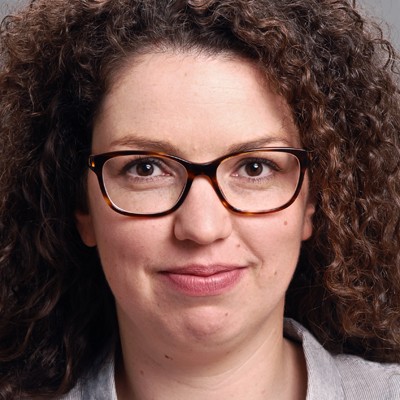
studied anthropology and cultural studies in Romania and Hungary before graduating in visual ethnography from Leiden University in the Netherlands. Her film Swamp Dialogues — a visual anthropological analysis of the Danube Delta Biosphere Reserve in Romania — has been screened at nearly two dozen international film festivals and was awarded best student film at the 2015 ASTRA festival in Romania and best feature length film at the 2016 Pêcheurs du Monde in France. Following graduation, Ildikó has been a guest lecturer at Leiden University and a research assistant within the RaceFaceID project.
research mail[at]race-face-id[dot]eu publications media
 I am an ethnic Hungarian from Romania. When I was a student, I thought Icould see who is Hungarian and who is Romanian. But could I? And what did I base my judgement on? It couldn’t have been the face. Or the clothes. Or the hair. Perhaps I was not relying on my eyes at all. Was I listening? But what if people did not talk at all? I’ve been always curious about what we see and how we give meaning to it. We compare the things standing side to side and we evaluate them based on previous experiences: a constant montage across objects, concepts, spaces and time. But what use are our eyes when it comes to categorizing people?
I am an ethnic Hungarian from Romania. When I was a student, I thought Icould see who is Hungarian and who is Romanian. But could I? And what did I base my judgement on? It couldn’t have been the face. Or the clothes. Or the hair. Perhaps I was not relying on my eyes at all. Was I listening? But what if people did not talk at all? I’ve been always curious about what we see and how we give meaning to it. We compare the things standing side to side and we evaluate them based on previous experiences: a constant montage across objects, concepts, spaces and time. But what use are our eyes when it comes to categorizing people? -
Lieke Wissink
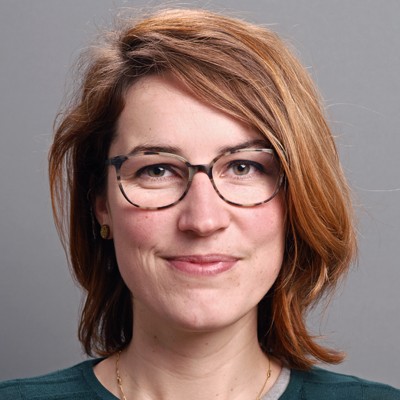
Lieke Wissink holds a BA in Cultural Anthropology, a MA in Philosophy of Science and a MSc in Anthropology (cum laude) from the University of Amsterdam. Supported by an Erasmus Mundus Scholarship she also studied political science at the Kerala University, India. She was PhD representative at the Amsterdam Institute for Social Science Research in 2014–2015 and a visiting scholar at the Université Libre de Bruxelles in 2015–2016. In 2018 she will be a visiting fellow at the New School for Social Research in New York City.
In 2015, Lieke co-founded the StateTS platform, which brings together social scientists who are inspired by material semiotic techniques in their research on the intersection of states, security and mobility. She also teaches undergraduate anthropology students and is actively involved in educational initiatives to support the empowerment of local migrants such as the Refugee Lecture Series and the We Are Here Academy.
research L[dot]M[dot]Wissink[at]uva[dot]nl publications media
xxxxxxx xxxxxxxxxxx xxxxxxxxxxxx xxxxx xxxxxxxxxx xxxxxxxxxxx xxxxxxxxxxxxxxx xxxxxxxxxxxxx xxxxxxxx xxxxxxxxxx xxxxxxxxxxxx

-
Irene van Oorschot
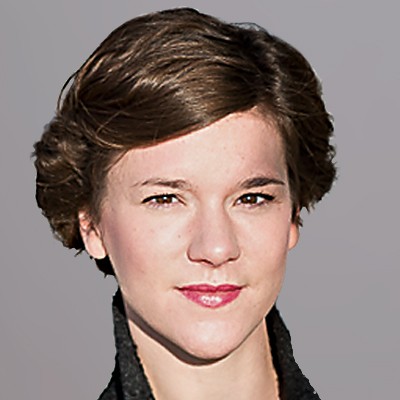
Irene van Oorschot holds a BA in Liberal Arts and Sciences at University College Utrecht (2007) and a MSc in Social Sciences at the Amsterdam Institute for Social Science Research. She currently awaits the defense of her PhD thesis Ways of Case-Making, which is concentrated on local, epistemic practices within a criminal court in the Netherlands, and pays particular attention to the role of the case file in mediating these practices. Her interests lie in the fields of posthumanist thought, ethnography, the study of law and bureaucracies, and expert knowledges.
Having edited a special issue on Actor Network Theory for the Dutch Sociologie, she is currently an editor for Krisis, Journal for Contemporary Philosophy. She is an avid reader of feminism-inspired science fiction and, in light of her interest in cyborgian bodies and practices, immensely enjoys watching professional road cycling.
research vanoorschot[dot]irene[at]gmail[dot]com publications
 Skulls, DNA, sketch artists, judges, expert witnesses … Making a Murderes has nothing on this RaceFaceID project! I'm looking forward to learn how judges negotiate these forensic knowledges.
Skulls, DNA, sketch artists, judges, expert witnesses … Making a Murderes has nothing on this RaceFaceID project! I'm looking forward to learn how judges negotiate these forensic knowledges. -
Alana Helberg
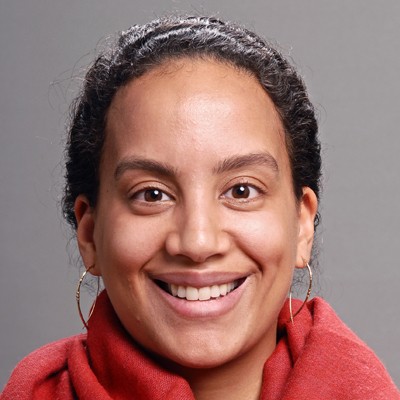
Alana Helberg-Proctor is a post-doctoral researcher in the RaceFaceID project. She holds a BA in liberal arts with a concentration in the science and culture of health from Eugene Lang College the New School, a MA in global political economy and finance from the New School, and a MSc in public health from Maastricht University, which she completed with honours. Her PhD research within the Department of Health, Ethics and Society at Maastricht University’s Faculty of Health, Medicine and Life Sciences critically examined the production of “ethnicity” within health research and policy in the Netherlands. Alana is also an assistant professor in the MSc Global Health program at Maastricht University and a visiting lecturer at the University of Amsterdam. Alana is married and has two children, the family lives a bi-coastal Dutch-Caribbean life.
research A[dot]E[dot]G[dot]Helberg-Proctor[at]uva[dot]nl
 My research interests include analysis of the use of ethnicity and race in scientific research, health policy and care. In this work I ask how the objects race and ethnicity are enacted in research, policy and care, and what the consequences of those particular enactments are. Specifically, I am interested in how social and political processes and institutions are inevitably intertwined with the enactment of ethnicity and race in scientific research, health policy and care.
My research interests include analysis of the use of ethnicity and race in scientific research, health policy and care. In this work I ask how the objects race and ethnicity are enacted in research, policy and care, and what the consequences of those particular enactments are. Specifically, I am interested in how social and political processes and institutions are inevitably intertwined with the enactment of ethnicity and race in scientific research, health policy and care. -
Jeltsje Stobbe
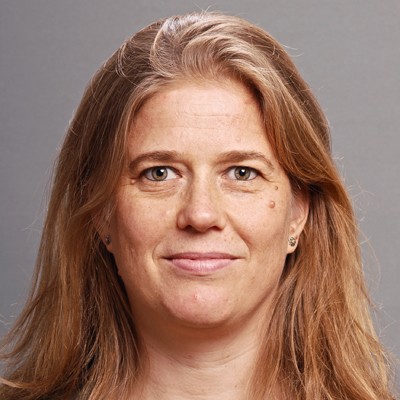
Jeltsje Stobbe is affiliated with the anthropology and archaeology departments of the University of Amsterdam, and also works as a historian, archivist and policymaker for the South Africa House. She previously worked as a junior researcher, lecturer and field director in the archaeology department (2001-2017).
Jeltsje is interested in the archiving and curating of human and non-human pasts and the kinds of storytelling these co-generate. Her interests span earthly archaeology, space archaeology and archival science, and she is especially interested in the question how archives mediate pasts, presents and futures, a question she currently explores through artistic research with friends at praxxstudio.nl.research j[dot]stobbe[at]uva[dot]nl
 My interest in history, the past, scientific practice and storytelling has found a warm stay with the RaceFaceID project. I am very happy and grateful to work on a bookproject in such a welcoming atmosphere!
My interest in history, the past, scientific practice and storytelling has found a warm stay with the RaceFaceID project. I am very happy and grateful to work on a bookproject in such a welcoming atmosphere! -
Denitsa Gancheva
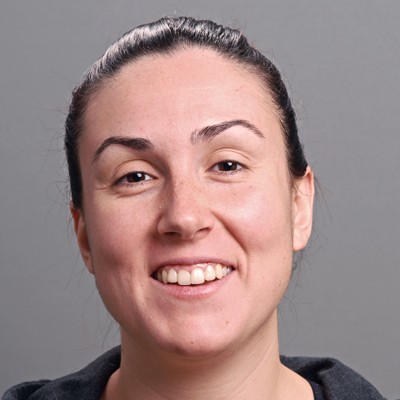
Denitsa Gancheva is the RaceFaceID project coordinator. She has a MSc in Social Policy and Social Work from the University of Amsterdam, where she deepened her interests in the rights of children worldwide—especially their right to meaningful societal inclusion and fr
-
ee expression. Denitsa currently combines her academic interests with advocacy. Alongside her work for RaceFaceID, she is the Youth Participation Coordinator for the Amsterdam-based NGO Child Helpline International, where she is responsible for developing and implementing the organization’s youth participation model. Denitsa enjoys traveling and yoga and is always looking for occasions to return to the sun and her family in Bulgaria, where she is originally from.
d[dot]g[dot]gancheva[at]uva[dot]nl
 From my position in the team, I get a very interesting “interdisciplinary” view on the work that we do through the RaceFaceID project. I am often at the intersection between the projects of the team members and the take on their subject, the effect of our work in the public space and the nitty-gritty of how such a project works on the operational level. It is certainly an exciting process to be involved in!
From my position in the team, I get a very interesting “interdisciplinary” view on the work that we do through the RaceFaceID project. I am often at the intersection between the projects of the team members and the take on their subject, the effect of our work in the public space and the nitty-gritty of how such a project works on the operational level. It is certainly an exciting process to be involved in! -
Martine de Rooij

Martine de Rooij was part of the RaceFaceID team during the startup of the project (2014-2015). Together with the PI she conducted the initial desk research for RaceFaceID. She holds a MSc in Social Sciences from the University of Amsterdam.
-
Dr. Victor Toom

Dr. Victor Toom, an anthropologist of scientific practice, empirically scrutinizes the uses of forensic technologies in contexts of mass human fatality investigation. Victor's work blends extensive knowledge of forensic technologies with state-of-the-art social scientific methodologies and theories. He currently examines efforts to identify victims of the 1995 Srebrenica genocide, and how victims' families become involved in those efforts as well as how families become involved in the trials against those held responsible for massacre in Srebrenica at the International Criminal Tribunal for the former Yugoslavia. In addition, he is preparing a book about identifying victims of the 9/11 terrorist attacks in New York City. His rigorous qualitative research methodology is aimed at articulating a forensic or bureaucratic logic of "atrocity victim identification" (AVI) and "disaster victim identification" (DVI) practices. That logic is contrasted with experiences and needs of victims’ families after the Srebrenica genocide and collapse of the World Trade Center.
-
Dr. Fenneke Sysling

Fenneke Sysling is a postdoctoral researcher affiliated with the RaceFaceID project. She is a historian of science, race, anthropology and colonialism specializing in the role of measurement and quantification in the making of knowledge. Her book Racial Science and Human Diversity in Colonial Indonesia, based on her PhD, was published in 2016. A new project, funded by an NWO Veni Grant, looks at how individuals use scientific tools to know more about themselves, from height-weight charts around 1900 to genetic ancestry testing. She also has a special interest in the making and afterlife of anthropological plaster face masks.
-
Prof. dr. Dvora Yanow

affiliated fellows
visiting fellows
-
Prof. Sara Ahmed
University of Cambridge -
Dr. Ruth Benschop
Zuyd University of Applied Sciences -
Dr. Juliana Boldrin
Universidade Estadual de Campinas (UNICAMP)
-
Dr. Endre Dányi
Der Bundeswehr Universität München
-
Dr. Abigail Nieves Delgado
Ruhr Universität Bochum
-
Dr. Clément Dréano
University of Turin -
Prof. Christine Hanke
Universität Bayreuth -
Prof. Andrew Irving
University of Manchester -
Dr. Michael Montoya
University of California, Department of Anthropology -
Dr. Maria Fernanda Olarte Sierra
Investigación cualitativa ciencia y tecnología, Colombia -
Dr. Juno Salazar Parreñas
Ohio State University, Department of Women's, Gender and Sexuality Studies -
Prof. Katharina Schramm
Martin Luther Universität Halle-Wittenberg -
Prof. Isabelle Stengers
Université Libre de Bruxelles -
Dr. Mihai Surdu
University College Freiburg -
Dr. Noah Tamarkin
Ohio State University, Department of Comparative Studies -
Prof. Peter Wade
University of Manchester -
Prof. Caroline Wilkinson
Liverpool John Moores University
visiting students and their projects
-
Jeffrie Buckle
De racialisering van spiermassa: een reis van het Amerikaanse lab naar de Nederlandse spreekkamer and An exploration of the application of the race-correction in MDRD-formula by general practitioners in the Netherlands -
Sara Casartelli
Moving Bodies: Drowning and Creative Infrastructures for Identification -
Eva van der Leest
The prospections and genetic causes of Antisocial Personality Disorder: a systematic review -
Yoren Lausberg
Literature review and fieldwork: Hair, Race and Anthropology of Science -
Sabine Netz
Coming of age in x-ray rooms and offices – On practices of (forensic) age assessments of young refugees in Hamburg -
Erika Persson
“The Body as Evidence”: Societal implications of the use of Medical Age Determination in the process of asylum seeking in Sweden and Forensic identification of unaccompanied refugees in Sweden -
Maja Sisnowski
Infrastructural Practices in Berlin's Public Transport System -
Bobby Witte
Het gouden DNA-spoor: een bekende onbekende. Ras als relationeel object in de forensische DNA-praktijk in de zaak-Vaatstra in Nederland

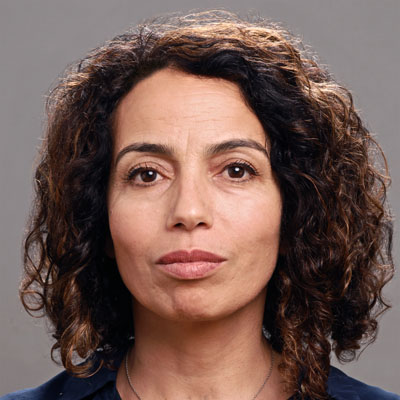 Amade M'Charek
Amade M'Charek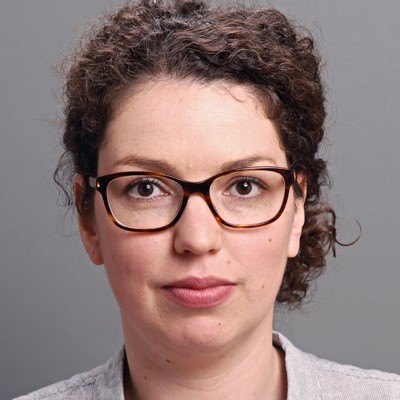 Ildikó Zonga Plájás
Ildikó Zonga Plájás